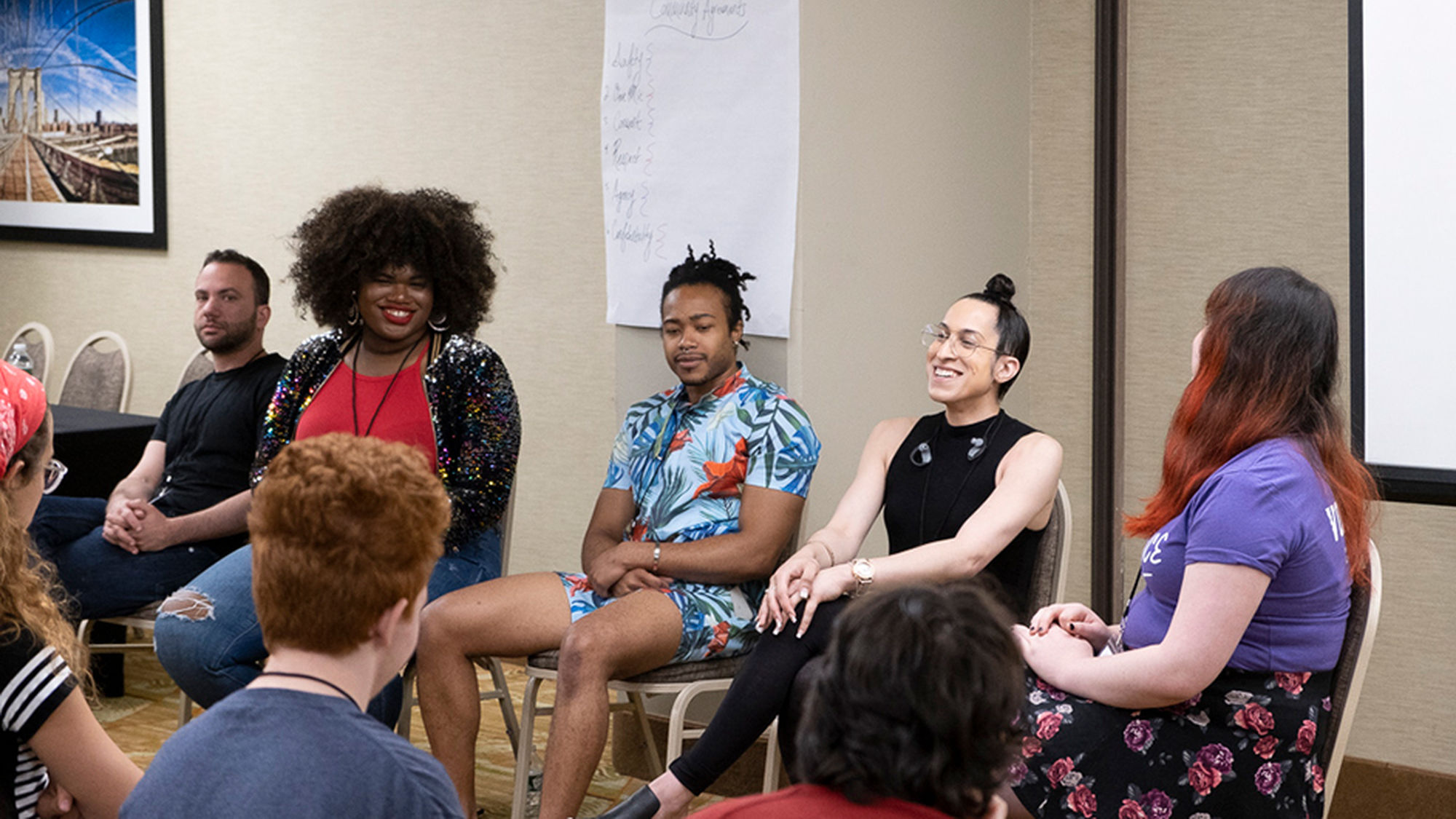
Support Groups
For Gender Expansive and Transgender Adolescents
For Caregivers and Family Members
For Children 5-10 years old
The Gender Creative Kids group is open to all gender-expansive and transgender children between the ages of 5 and 10 years old. The group provides children with an affirming space where they can socialize, play and engage in creative activities with other children expressing comparable ranges of gender fluidity. It is especially designed to run concurrently with the parents group and conveniently allows parents to meet while their children are having supervised fun in the same building.
For more information about scheduling to come to a support group, please call or email GFP:


(212) 879-4900, ext. 370
For Gender Expansive and Transgender Adolescents
This support group welcomes adolescents between the ages of 14 and 18 years old. The group provides teens with a safe space where they can share experiences around transition, socialization and other challenges. It is an interactive and empowering space that also emphasizes resilience and mutual support. It is especially designed to run concurrently with the parents group once a month on Friday from 6pm to 7pm, and conveniently allows parents of teenagers to meet in the same building.
For Siblings
While most siblings are accepting and understanding of their gender-expansive and transgender family member, siblings face specific challenges that require attention and support. They too need to navigate the issues of disclosure to friends and peers in school. They might worry about their sibling or want to be more involved in the meaningful conversation their family is having about gender development.
For Caregivers and Family Members
Many parents and caregivers feel concerned and uncertain about how to handle their child’s gender expression or identity when the identity does not align with social expectations of the child’s sex assigned at birth. While caregivers can access information online, they might feel isolated and struggle to find other caregivers who can understand their dilemmas or appreciate their family’s accomplishments. While some caregivers find it easier to embrace gender-expansiveness, other caregivers find themselves uncertain about how best to protect and nurture a child with gender fluidity. Many parents find comfort in having a community of peers where they can share their struggles, doubts, and achievements, and be understood by other parents navigating similar questions. Issues of disclosure to family members and friends, psychosocial and medical treatment, advocacy in schools, faith communities and other institutions are addressed.
In addition, parenting transgender adolescents who are entering, or are well into puberty, can confront parents with dilemmas specific to that developmental phase, such as whether or not to undertake hormonal therapy and/or gender affirming surgeries, navigating medical insurance and providers, finding affirmative high schools and colleges, addressing dating, sexuality, and more.